
Paul Bertin
@paulbertin.bsky.social
Junior lecturer at UNIL (Lausanne, Switzerland)
Conspiracy beliefs, meta-psychology, sports fandom
Conspiracy beliefs, meta-psychology, sports fandom
Great talk by @rritabajraktari.bsky.social at @bapsciences.bsky.social 2025, with a proud supervisor @olivierklein.bsky.social!
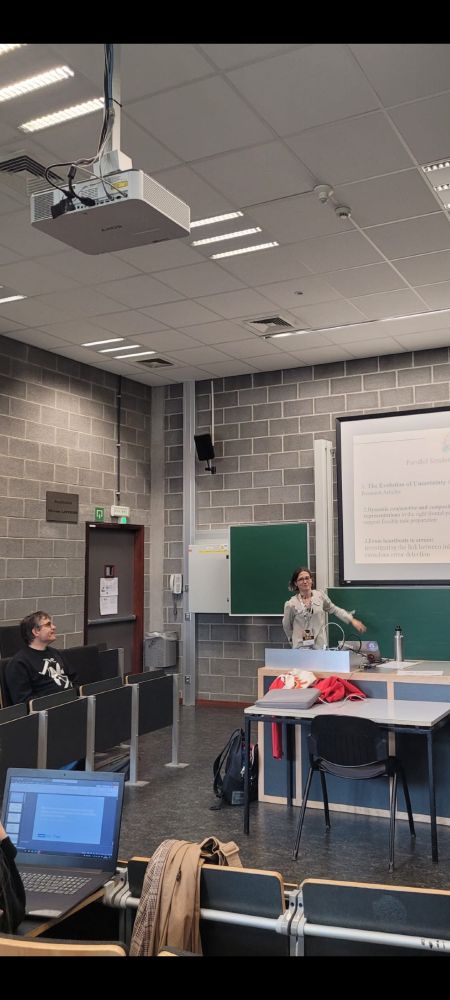
May 26, 2025 at 2:51 PM
Great talk by @rritabajraktari.bsky.social at @bapsciences.bsky.social 2025, with a proud supervisor @olivierklein.bsky.social!
Even more puzzling was the finding that this decrease occurred regardless of French fans' political concerns about minorities and environmental issues—the best predictors of boycott intentions.
In other words, politicized fans struggled to maintain the boycott.
In other words, politicized fans struggled to maintain the boycott.
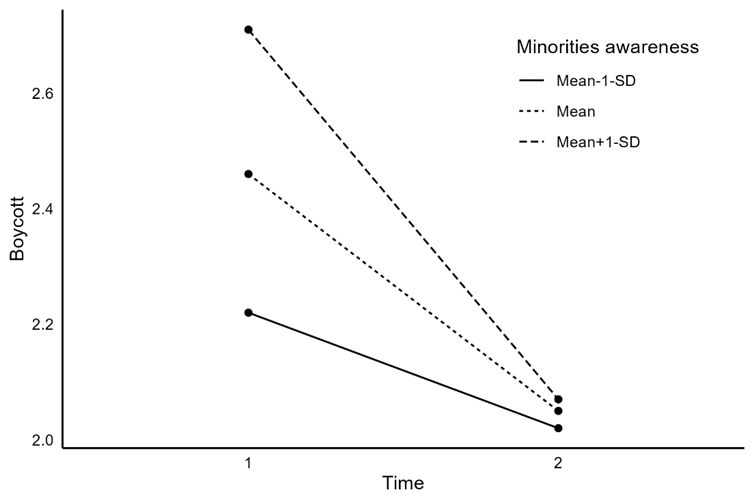
February 14, 2025 at 11:31 AM
Even more puzzling was the finding that this decrease occurred regardless of French fans' political concerns about minorities and environmental issues—the best predictors of boycott intentions.
In other words, politicized fans struggled to maintain the boycott.
In other words, politicized fans struggled to maintain the boycott.
Then, we compared fans' intentions before the WC with their actual boycott behavior after the tournament.
We observed a decrease in all countries, but it was only significant in France—likely due to limited statistical power in other countries and the strong performance of the French team.
We observed a decrease in all countries, but it was only significant in France—likely due to limited statistical power in other countries and the strong performance of the French team.
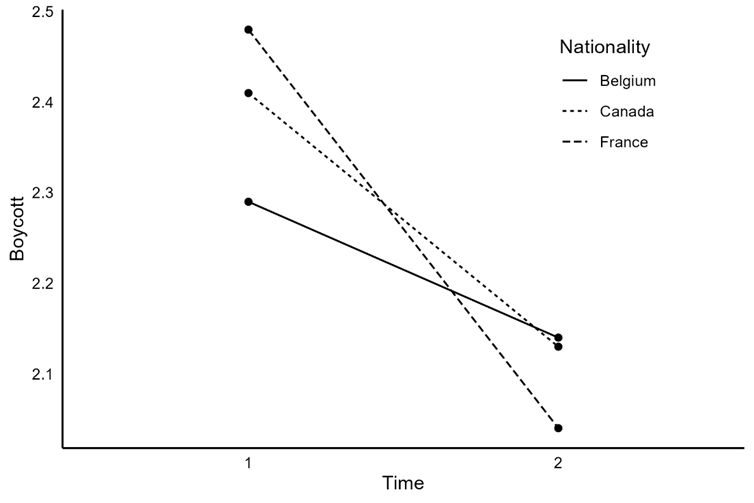
February 14, 2025 at 11:31 AM
Then, we compared fans' intentions before the WC with their actual boycott behavior after the tournament.
We observed a decrease in all countries, but it was only significant in France—likely due to limited statistical power in other countries and the strong performance of the French team.
We observed a decrease in all countries, but it was only significant in France—likely due to limited statistical power in other countries and the strong performance of the French team.
We investigated boycott intentions in France, Belgium, Canada, and Switzerland (N = 1,635).
Boycott intentions were tied to concerns about environmental and minority issues.
Rejection of the boycott was best predicted by strong identification with the team and enjoying football’s aesthetic appeal.
Boycott intentions were tied to concerns about environmental and minority issues.
Rejection of the boycott was best predicted by strong identification with the team and enjoying football’s aesthetic appeal.
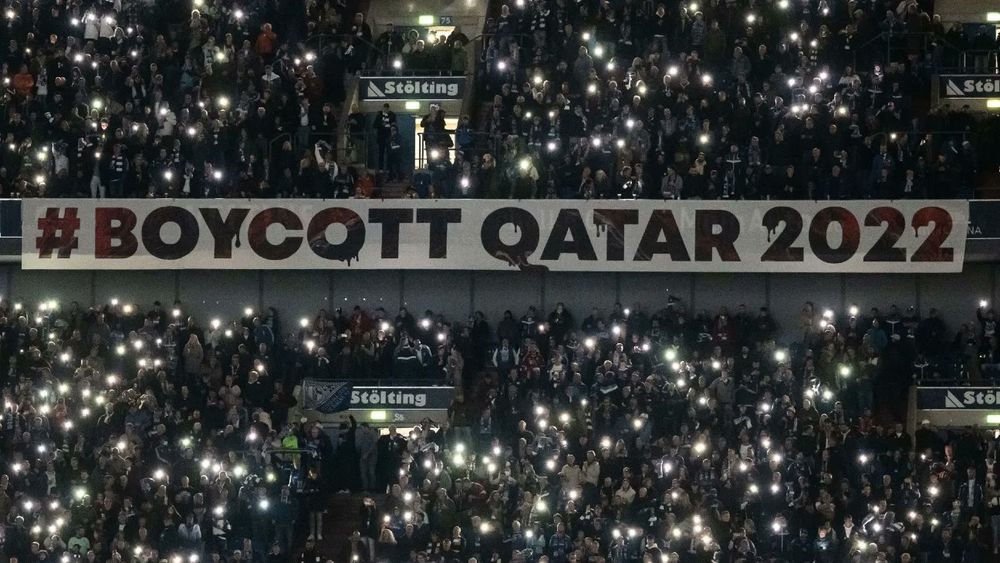
February 14, 2025 at 11:31 AM
We investigated boycott intentions in France, Belgium, Canada, and Switzerland (N = 1,635).
Boycott intentions were tied to concerns about environmental and minority issues.
Rejection of the boycott was best predicted by strong identification with the team and enjoying football’s aesthetic appeal.
Boycott intentions were tied to concerns about environmental and minority issues.
Rejection of the boycott was best predicted by strong identification with the team and enjoying football’s aesthetic appeal.
New paper on sports fans and political behaviors now in press at bsky.app/profile/ispp...
In late 2022, @paulinegrippa.bsky.social and I conducted an intercultural, longitudinal study on fans' motives for (not) boycotting the 2022 World Cup.
A 🧵
In late 2022, @paulinegrippa.bsky.social and I conducted an intercultural, longitudinal study on fans' motives for (not) boycotting the 2022 World Cup.
A 🧵
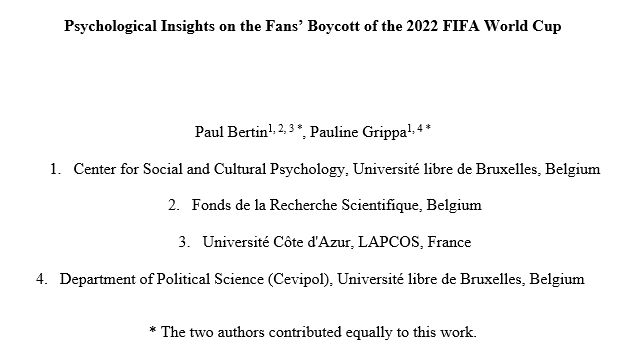
February 14, 2025 at 11:31 AM
New paper on sports fans and political behaviors now in press at bsky.app/profile/ispp...
In late 2022, @paulinegrippa.bsky.social and I conducted an intercultural, longitudinal study on fans' motives for (not) boycotting the 2022 World Cup.
A 🧵
In late 2022, @paulinegrippa.bsky.social and I conducted an intercultural, longitudinal study on fans' motives for (not) boycotting the 2022 World Cup.
A 🧵
We used a social identity perspective to further explore attitudes toward the ESL.
We suggested that team narcissists were favourable toward the ESL due to fair-weather fandom tendencies, while long-term identifiers saw it as a threat.
We suggested that team narcissists were favourable toward the ESL due to fair-weather fandom tendencies, while long-term identifiers saw it as a threat.

November 19, 2024 at 2:38 PM
We used a social identity perspective to further explore attitudes toward the ESL.
We suggested that team narcissists were favourable toward the ESL due to fair-weather fandom tendencies, while long-term identifiers saw it as a threat.
We suggested that team narcissists were favourable toward the ESL due to fair-weather fandom tendencies, while long-term identifiers saw it as a threat.

